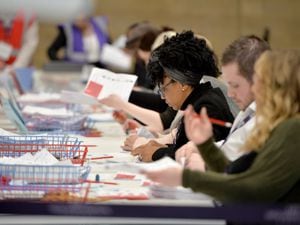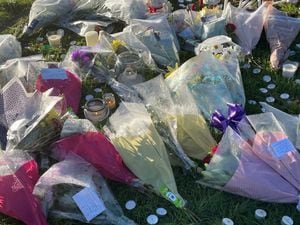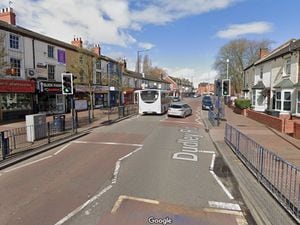Wolverhampton residents struggle to think of positive words for city centre
Forty-one per cent of people living within the vicinity of Wolverhampton city centre said they could not think of anything positive to say about it. And only a third of people living within a 15-minute radius saw it as their primary shopping destination.

These are the shock findings of a study carried out by experts financed by leading businessman Henry Carver to draw up a plan to revitalise the city.
The results of the study – and suggestions on how to address the problem – were presented to members of Wolverhampton Business Forum at a meeting this week.
Mr Carver spent £30,000 of his own money hiring experts from planning consultants Tibbalds and The Retail Group to look at how to bring the city back to life.
The meeting was attended by 130 people with an interest in the city.
A panel including West Midlands elected mayor Andy Street, Wolverhampton North East MP Jane Stevenson and former MP Rob Marris took questions from the audience, which included Tim Johnson, chief executive of Wolverhampton Council.
They were told that the city had many positive attributes, particularly relating to its history and shopping centres, but these often went unrecognised because they were poorly promoted.
Visitors arriving at the railway station were put off by the shabby approach to the centre of the city, and experiences of anti-social behaviour, the consultants added.

Mike Evans, of The Retail Group, said: "Forty-one per cent of people who live close to Wolverhampton centre couldn't find anything to say that they liked about the city centre.
"We have got to give them some positive things, some reasons to come into the city.
"They say 'I have got to go to Bentley Bridge, everybody else is going there'."
Paul Frater, also of The Retail Group, said more than 120 residents took part in a survey, and the team also spoke to businesses, landlords and leisure venues, as well as council officers and MPs.
He said the city did have much to commend it, and that despite their misgivings, most people felt a sense of pride in being from Wolverhampton. But he said the city's assets were often oveshadowed by a feel of negativity.
"There is lots to like about the Mander and Wulfrun centres, they are clean, bright and well maintained, and are a key asset to the city centre," said Mr Frater.
"But Dudley Street is blighted by anti-social behaviour, empty units, and it is a very hard environment for pedestrians.
"The sense of arrival is underwhelming, it's difficult to access by car, with difficult car parking, and Beatties needs addressing as a matter of priority."
Mr Frater said the closure of Beatties had increased the amount of vacant floorspace in the city centre from 26 per cent to 33 per cent.

He said people who came into the city to shop were predominantly bargain hunters, making it difficult to attract more upmarket businesses.
Mr Frater said many of the problems faced by Wolverhampton were typical for town and city centres across the country, particularly since the coronavirus lockdown.
He suggested that tackling anti-social behaviour and making it easier for visitors to navigate their way around the city should be priorities.
Holding a wider variety of events and activities to give people more reasons to come into the city was also important, he added.
"This means better markets, more specialist markets, history celebrations, improved leisure programmes and sporting events."
Mr Frater said the night-time economy was too heavily focused on the alcohol trade, with a lack of restaurants and activities for families.

Mr Carver called for a drive to convert the upper floors of buildings in the city centre into flats. He said the target should be to increase the number of people living in the city centre by 10,000.
Mr Street said the transformation of Birmingham city centre showed what could be achieved by encouraging people to live in the middle of the city.
He said there was huge demand for residential property in the area, and the West Midland Combined Authority would be in a position to offer some money to facilitate the conversion of buildings for residential use.
But he said the difficulty for Wolverhampton was that the average cost of converting a vacant building in the city was between three and six times as much as it was in Birmingham, while the rental yield was lower.
"We have got quite a lot of money from central government which we can use, but the problem in Wolverhampton is that some of the viability gaps are quite horrendous," he said.
"What we have got to do is choose one or two iconic venues, and that is probably the single biggest thing we can do to transform Wolverhampton city centre."





